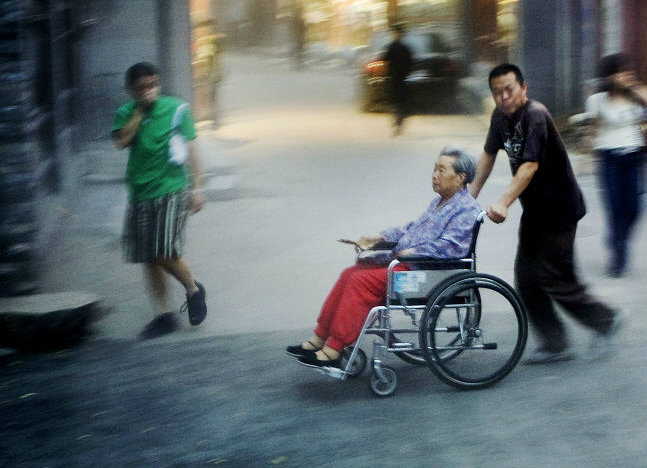By: Hannah Kuper
Send to a friend
The details you provide on this page will not be used to send unsolicited email, and will not be sold to a 3rd party. See privacy policy.
Last month, China announced it was abandoning its one-child policy, after more than 30 years, to “address the challenge of an ageing population”. Today the average age in China is 35 years, but if trends continue it’s likely to rise to 49 by 2050 — and this has major implications for the economy and health, with disabilities common in those over 60.
But it’s not just China where people are getting older: this is a global trend, and one found in many low- and middle-income countries. The WHO’s new World report on ageing and health estimates that the number of people over 60 years will double by 2050. [1] So while longer life expectancy is a welcome trend, governments will need to adapt services to meet this new global reality, particularly when it comes to public health.
Older people are a diverse group. Disability doesn’t affect all older people, but it is most common in this age bracket: the latest WHO estimates suggest that four out of ten people aged 60 and above have a disability, ranging from depression to extreme difficulties with mobility or vision. [2] One-in-13 face extreme difficulties — for example, they might experience three or more chronic health issues at once — with severe disabilities twice as likely in African countries as in high incomes countries. [2] All this means many older people are unable to do the things that matter to them or to fully contribute to society.
“Age-friendly environments to help older people participate as fully as possible in society, even if they have a disability, will also improve life for older people.”
Hannah Kuper
But disability is not inevitable as people age. Action can be taken to try to prevent or delay the health conditions that cause disabilities by controlling chronic diseases such as diabetes or hypertension. And governments can provide services to treat disabling conditions such as cataracts, hearing loss and arthritis. In poor countries particularly, health services will need to shift from their current focus on treating acute conditions, towards providing ongoing care for the chronic conditions that raise the risk of disability.
And because so many older people are affected by multiple, intersecting disabilities, governments should think about integrating expertise from different specialities into overall healthcare provision. The achievements of Brazil’s Family Health Strategy hold important lessons here. Brazil ensures multidisciplinary teams of specialists — including physiotherapists, psychologists and nutritionists, for example — are available locally in a service that currently covers more half the population. [3] It has made impressive inroads, including reducing heart disease and stroke, both of which can cause disability in older people. [4]
Age-friendly environments to help older people participate as fully as possible in society, even if they have a disability, will also improve life for older people. Better urban planning can make environments more ageing-friendly, by creating local services such as local health clinics, and making these accessible to people with disabilities. Local projects are better at meeting local needs than more remote, centralised ones. For example, community-level clubs for older people have been established across Vietnam to address local needs, whether for healthcare or access to information and services.
And legislation can help: governments could introduce policies to reduce discrimination. China has gone as far to introduce an Elderly Rights Law that makes it mandatory for children to visit their ageing parents.Increasing life expectancy is a success story, reflecting decades of improvements in health and living conditions. But it will take societal changes to allow older people to have the fullest lives possible, whether they have a disability or not — and this requires robust policies that protect their needs and rights.
Hannah Kuper is codirector of the International Centre for Evidence in Disability at the London School of Hygiene & Tropical Medicine, United Kingdom. The centre is on Twitter as @ICED_LSHTM, and Kuper can be contacted on [email protected]
References
[1] World report on ageing and health (WHO, September 2015)
[2] World report on disability (WHO, 2011)
[3] James Macinko and Matthew J. Harris Brazil's family health strategy — delivering community-based primary care in a universal health system (The New England Journal of Medicine, 4 June 2015)
[4] Davide Rasella and others Impact of primary health care on mortality from heart and cerebrovascular diseases in Brazil: a nationwide analysis of longitudinal data (British Medical Journal, 3 July 2014)














